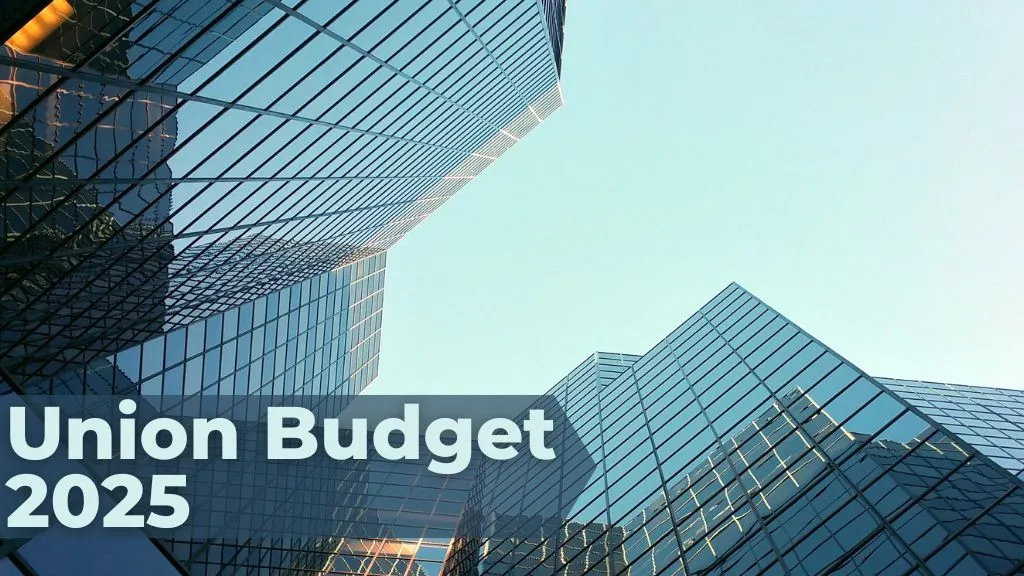
The Union Budget 2025 has brought significant reforms for the real estate industry, offering a wave of relief and new opportunities for homebuyers, investors, and developers alike.
From tax benefits to improved access to funds, the latest financial roadmap by Finance Minister Nirmala Sitharaman has strengthened confidence in the real estate business.
This budget aims to make homeownership more accessible, reduce tax burdens, and boost the overall growth of the real estate union budget.
Budget 2025 : Key Announcements That Impact Homebuyers

1. Higher Tax Rebate for Increased Savings
One of the most substantial announcements of the real estate union budget 2025 is the revision in income tax slabs under the new tax regime. Individuals earning up to Rs 12 lakh annually (Rs 12.75 lakh for salaried employees) will now pay no personal income tax. This initiative is expected to increase disposable income and empower individuals to invest in real estate.
According to Adhil Shetty, CEO of Bankbazaar.com, “This move significantly enhances disposable income, allowing individuals to save more for housing investments. The simplified tax structure ensures that the middle class has more liquidity, leading to increased household consumption, savings, and investments in equity and real estate.”
Additionally, with revised tax slabs and reduced rates, a taxpayer could save up to Rs 10,000 per month. This extra liquidity will benefit homebuyers by increasing their loan eligibility and helping them manage existing housing loan interest deductions more effectively.
2. Tax Exemption on Second Homes
A major relief in Budget 2025 is the elimination of tax liability on notional rental income from a second self-occupied property. Previously, individuals with more than one house had to pay tax on the deemed rental income of the second home.
With this reform, homebuyers can now own a second home without the burden of additional taxes. For example, a homeowner in Mumbai who owns a second property in Delhi will now be exempt from notional rent tax obligations, thereby reducing financial strain and encouraging investments in second homes.
3. Increased TDS Threshold on Rent
For property owners renting out their homes, the increase in the TDS (Tax Deducted at Source) threshold from Rs 2.4 lakh to Rs 6 lakh per annum is a significant win. This move reduces compliance burdens for tenants and ensures that landlords receive their rental income without unnecessary deductions.
For instance, if a landlord was receiving Rs 30,000 as monthly rent, under the previous tax regime, a 10% TDS deduction would mean receiving only Rs 27,000. Now, with the new threshold, landlords can receive their full rental income without deductions, thereby improving their cash flow.
4. SWAMIH Fund 2: Reviving Stalled Housing Projects
A game-changer in real estate news, the government has announced the launch of SWAMIH Fund 2, a Rs 15,000-crore blended finance facility. This initiative follows the success of the original SWAMIH Fund, which helped complete 50,000 housing units in stalled projects. The new fund is expected to accelerate the completion of an additional 1 lakh housing units, benefiting homebuyers stuck with delayed projects.
This step not only restores homebuyers’ confidence but also ensures liquidity in the real estate business by facilitating project completion and reducing financial uncertainty.
Boosting Housing Loan Affordability
1. Enhanced Housing Loan Interest Deduction
Budget 2025 has proposed revisions in housing loan interest deduction, which will encourage more individuals to purchase homes. Homebuyers who take loans under affordable housing schemes will now receive higher deductions on their interest payments, making it financially easier to own a home.
With interest rates around 9% and loan tenures extending up to 20 years, an increase in tax-saving benefits will ensure that middle-class families can manage their EMIs efficiently.
2. Reduced Compliance and Ease of Doing Business
The budget also introduces several regulatory reforms aimed at streamlining processes in the real estate industry. By reducing compliance burdens and facilitating faster approvals for housing projects, developers will be able to complete projects more efficiently, leading to faster delivery for homebuyers.
Commercial Real Estate Gains: National Guidance Framework for GCCs
Another critical development in real estate news is the introduction of a national guidance framework for Global Capability Centres (GCCs). This move will boost demand for commercial real estate, particularly in Tier-II and Tier-III cities, making them attractive hubs for IT, finance, and business operations.
According to industry experts, the framework will strengthen talent pipelines and infrastructure, attracting more multinational corporations and investors to the Indian real estate business.
What are the Implications for the Real Estate Market?
The changes introduced in Budget 2025 are expected to have far-reaching effects on the real estate industry:
- Greater Homeownership Opportunities— The government has removed the tax on notional rental income for second homes. This means homeowners can own two properties without worrying about extra tax liabilities, making homeownership more attractive and accessible.
- Increased Housing Demand—With higher tax rebates, lower housing loan interest burdens, and increased loan eligibility, more people will find it easier to buy homes. These changes will boost demand in the real estate business, benefiting both buyers and developers.
- Faster Project Completion—The launch of SWAMIH Fund 2 will help revive stalled housing projects, ensuring timely completion. This reduces financial stress for homebuyers who are stuck paying EMIs for under-construction homes while also renting another place to live.
- Growth in Rental Markets—The government has increased the tax deduction limit (TDS) on rental income, meaning landlords can now receive higher rent amounts without tax deductions. This will encourage more investments in rental properties while making it easier for tenants to find good rental options.
- Boost for Commercial Real Estate—The introduction of a national framework for Global Capability Centres (GCCs) will help develop infrastructure in upcoming business hubs, especially in tier-II and tier-III cities. This will create new job opportunities and improve commercial real estate growth in emerging markets.
Conclusion: A Budget for Homebuyers and Investors
Budget 2025 has set a positive tone for the real estate industry, addressing critical concerns of homebuyers and investors. With policies aimed at reducing tax liabilities, increasing affordability, and ensuring timely project completions, the government has demonstrated a strong commitment to strengthening the housing sector.
For prospective homebuyers, the new policies present an excellent opportunity to invest in real estate without the burden of unnecessary taxation. Simultaneously, landlords and developers stand to benefit from reduced compliance requirements and improved financial support.
As the real estate sector continues to evolve, these budgetary reforms provide a solid foundation for sustainable growth and long-term stability, making 2025 an exciting year for homeownership and investment in India.






